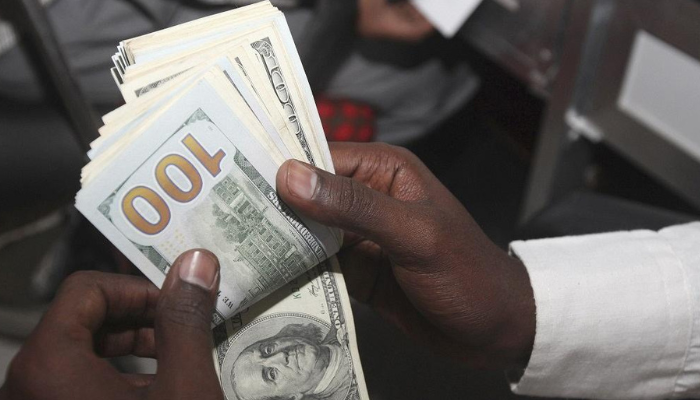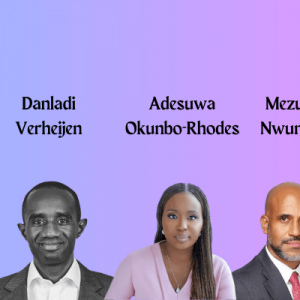On a hot afternoon in Lagos, 55-year-old trader, Mama Tolu, scrolls through her phone, waiting for a credit alert. Within minutes, she beams as an SMS drops in: “N400,000,” (less than £200 received). Her son, a nurse in the United Kingdom, has just sent money home for her upkeep.
Like millions of Nigerians, she depends on diaspora remittances for survival in a country where inflation, unemployment, and crumbling infrastructure have left households gasping for relief.
“I don’t know what I would have done without my son,” she says. “He pays my monthly bills, supports my grandchildren’s school fees, and even helps families and friends in need.”

Mama Tolu’s story mirrors that of many Nigerian families. Official remittances from Nigerians abroad hit $20.93 billion in 2024, more than four times the value of Nigeria’s Foreign Direct Investment (FDI) in the same year. According to the World Bank, Nigeria alone received nearly 37 percent of Sub-Saharan Africa’s total inflows, making it one of the continent’s largest recipients.
Remittances are the lifeline. Yet, behind the numbers lies a paradox that threatens Nigeria’s long-term future.
A nation living off its children abroad
For decades, Nigerians have sought greener pastures overseas, a phenomenon that has accelerated in recent years with worsening economic conditions at home. Skilled professionals, from doctors and nurses to engineers, academics, and IT specialists, continue to emigrate in droves.
Families that once invested in education as a means of securing upward mobility in Nigeria now see foreign migration as the ultimate payoff. After struggling to send a child through university here, parents scrape together funds to send them abroad. But once they leave, very few ever return to contribute directly to nation-building.
The result? A vicious cycle where the best brains develop foreign economies while Nigeria survives on the dollars they send back.
The silent collapse of Nigeria’s health sector
Nowhere is this brain drain more glaring than in healthcare. In April, Ali Pate, Nigeria’s coordinating minister of health, revealed that more than 16,000 doctors have left the country in the last five to seven years. The exodus has slashed Nigeria’s doctor-to-population ratio to 3.9 per 10,000 people, far below the World Health Organisation’s minimum recommendation of 10 per 10,000.
“The training of one doctor costs Nigeria about $21,000,” Pate noted at a regional medical workshop. “Each departure represents a huge financial loss to the country.”
It’s not just doctors. Nurses, midwives, and other health workers are also thinning out, leaving already stretched hospitals without adequate manpower. The ripple effect is clear: longer wait times, poorer patient outcomes, and an overwhelmed healthcare system.
Diaspora remittances: A blessing and a crutch
There’s no denying the importance of remittances. They help families buy food, build houses, pay for education, and cover medical bills. Economists often hail remittances as “private social welfare transfers” that sustain millions where government services fail.
But how far can they go in driving real growth?
“While diaspora remittances are mainly used for consumption such as feeding, accommodation, healthcare and other basic needs, they are not limited to consumption alone,” says Simon Samson, Economics lecturer at Baze University, Abuja, and chief economist at ARKK Economics and Data Limited.
“A sizable part of the funds is being used for investment, production and capital accumulation. Hence, boosting economic growth and development.”
Indeed, without the steady inflow of diaspora dollars, Nigeria’s poverty figures would be even more troubling. Projections suggest remittances could rise to $26 billion by 2025, cushioning households against the country’s rising inflation and currency depreciation.
The hidden costs of migration
While families benefit in the short term, the long-term impact of the brain drain is sobering. Every Nigerian engineer working in Silicon Valley is one less engineer building Nigeria’s crumbling infrastructure. Every doctor in London is one less hand in Nigeria’s overstretched hospitals. Every tech whiz in Berlin is one less innovator fueling Nigeria’s start-up ecosystem.
The irony: Nigerians are building hospitals, coding systems, and designing cities abroad, while their homeland languishes in deficits. The most populous black nation is exporting human capital for remittances.
Samson, earlier quoted, warned that while brain drain brings foreign exchange, it also leaves holes in Nigeria’s productive capacity.
“Brain drain attracts FX for Nigeria alongside many more,” he noted. “It is, nonetheless, without its issues. It erodes skilful manpower and brings many sectors to the precipice as thousands join the ranks of those ‘japa-ing’. Nigeria is a developing economy and can only become developed by optimising its resources. Not doing so means underdevelopment.”
Can Nigeria break the cycle?
The question remains: Does a nation that depends on diaspora remittances have a future? Experts argue that Nigeria must confront the root causes of its talent exodus, poor working conditions, weak governance, insecurity, and lack of opportunities.
Policies must go beyond celebrating inflows to creating environments where skilled workers can thrive at home. Investment in infrastructure, fair wages, merit-based recruitment, and political stability are crucial to retaining talent.
For Samson, channeling remittances into formal financial systems could unlock more developmental benefits.
“At the moment, diaspora remittances into Nigeria are divided down the middle with half coming through formal channels and the other half through informal channels,” the Abuja-based lecturer explained.
“Ensuring all remittances come through formal channels will help guarantee a surfeit of funds in the financial system with the concomitant benefits such as more loanable funds for MSMEs, blue-chip companies, job and wealth creation for Nigerians.”
Meanwhile, some suggest leveraging the diaspora more strategically, not just through remittances but by encouraging returnees, knowledge transfer, and investment in local industries.
For families like Mama Tolu’s, remittances remain a lifeline. But for Nigeria as a nation, the reliance is both a blessing and a crutch. It keeps millions afloat today, but risks mortgaging tomorrow.
As long as the brightest Nigerians continue to serve abroad while sending money back home, the paradox will remain: a country surviving on the generosity of its children, yet deprived of the very talents it needs to secure its future.
The hard truth, experts have concluded, is that diaspora dollars may feed mouths, but they cannot replace the hands and minds required to build a nation.
Distortion in family ties, culture
The brain drain causes distortions in family ties as most emigrated children hardly return home to be part of their people’s culture. With time, they tend to forget their home culture while imbibing those of their new base. In many instances, aged parents only see money remitted back home, but not their children beyond video calls.
A concerned observer said: “It is getting so bad that many sons and daughters who relocated abroad do not even return home to participate in the burial of their parents. So, what is the joy of training your children and sending them off abroad. Some parents are event sent to old people’s homes because of loneliness.
“It is also sad that many elders who were supposed to be custodian of their culture and ancestral knowledge of their people have abandoned all these for a better life in the Western world. They are lost there as they hardly visit home.”
Stay ahead with the latest updates!
Join The Podium Media on WhatsApp for real-time news alerts, breaking stories, and exclusive content delivered straight to your phone. Don’t miss a headline — subscribe now!
Chat with Us on WhatsApp








